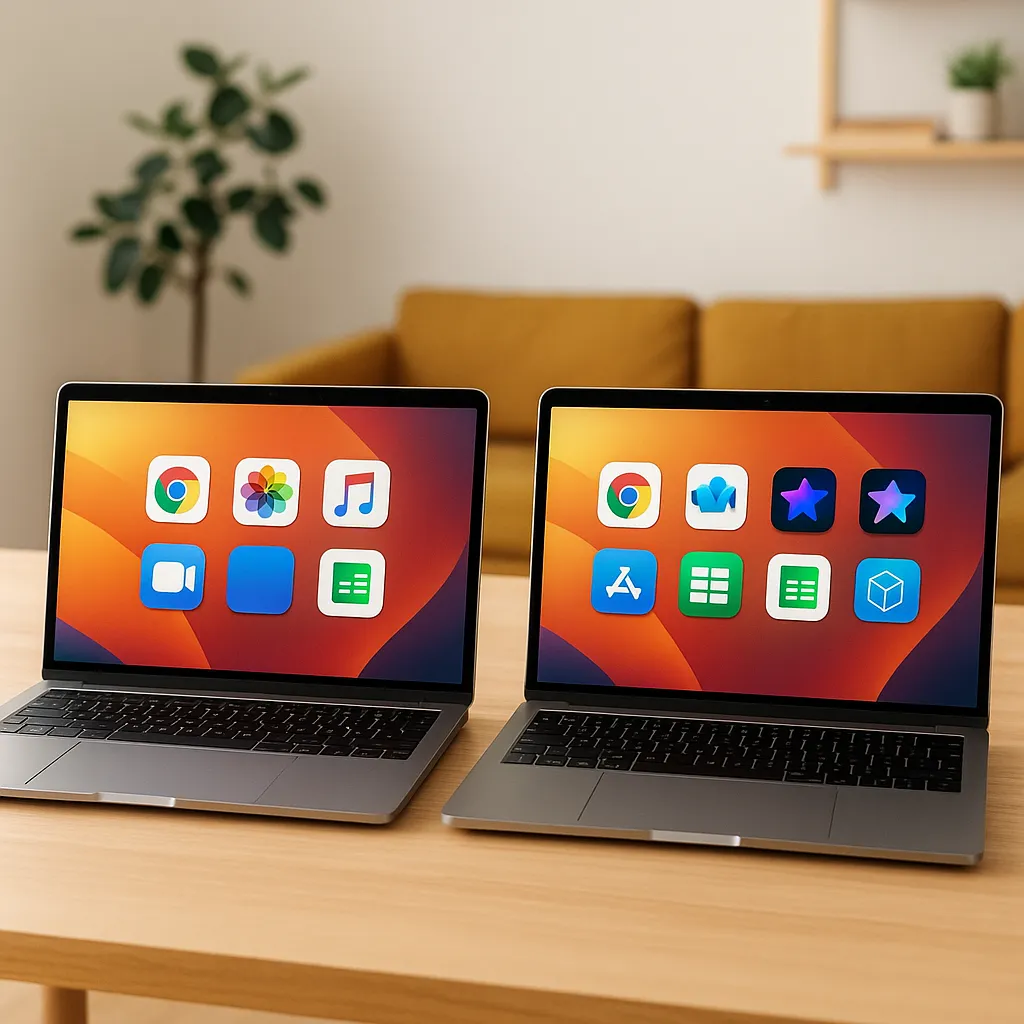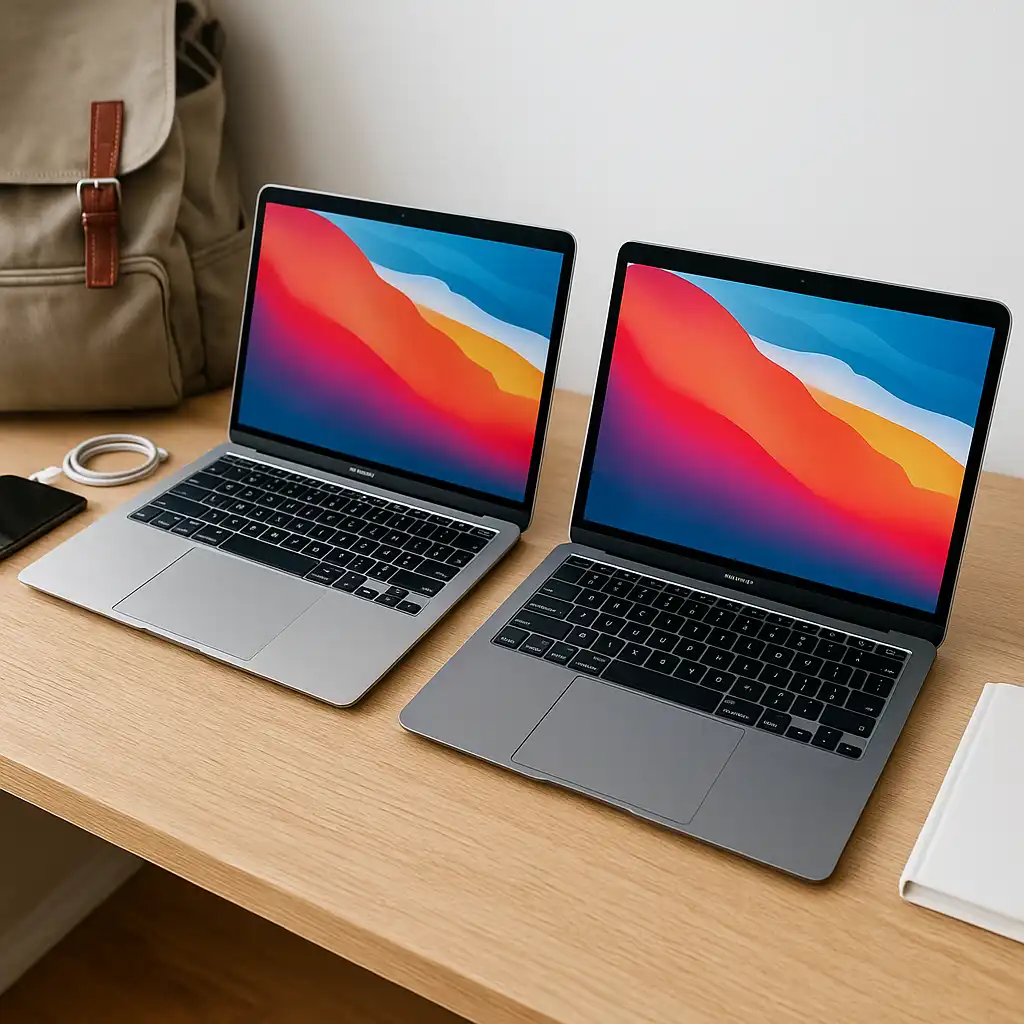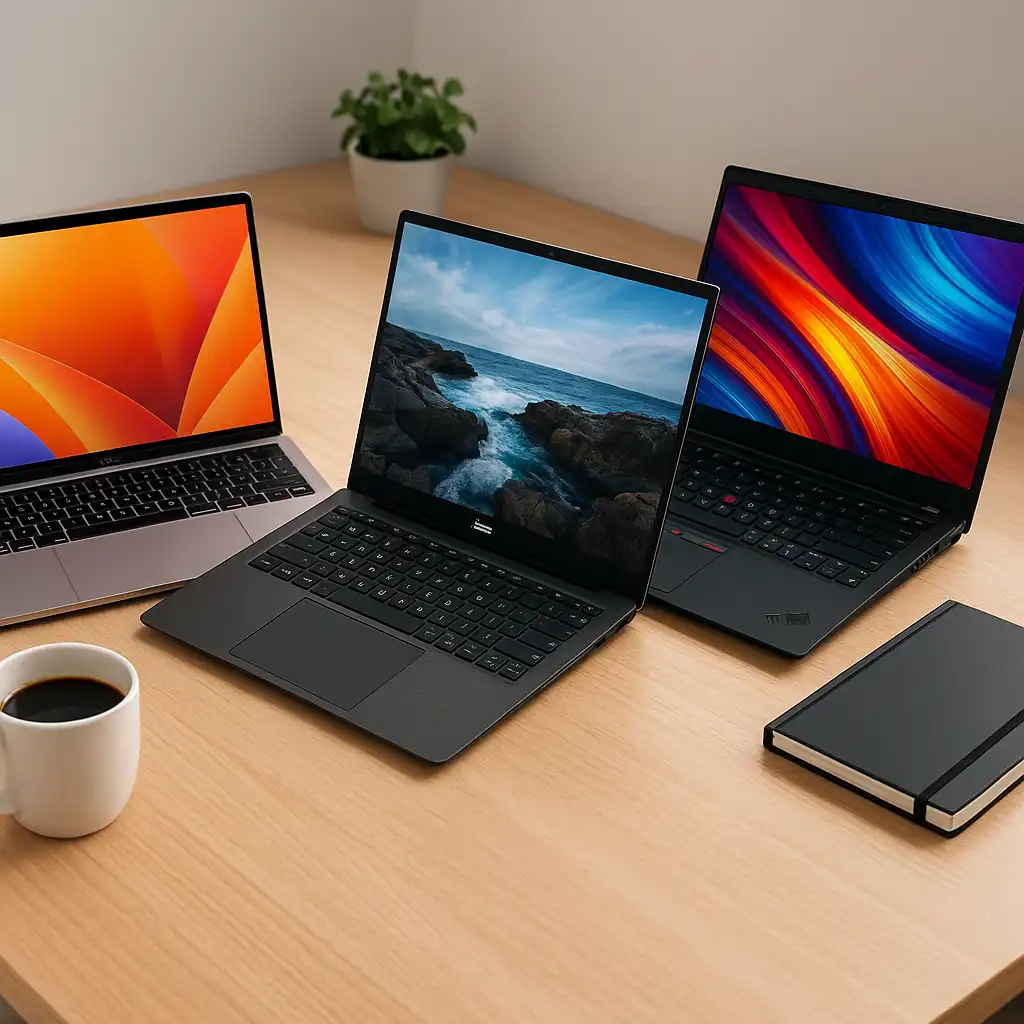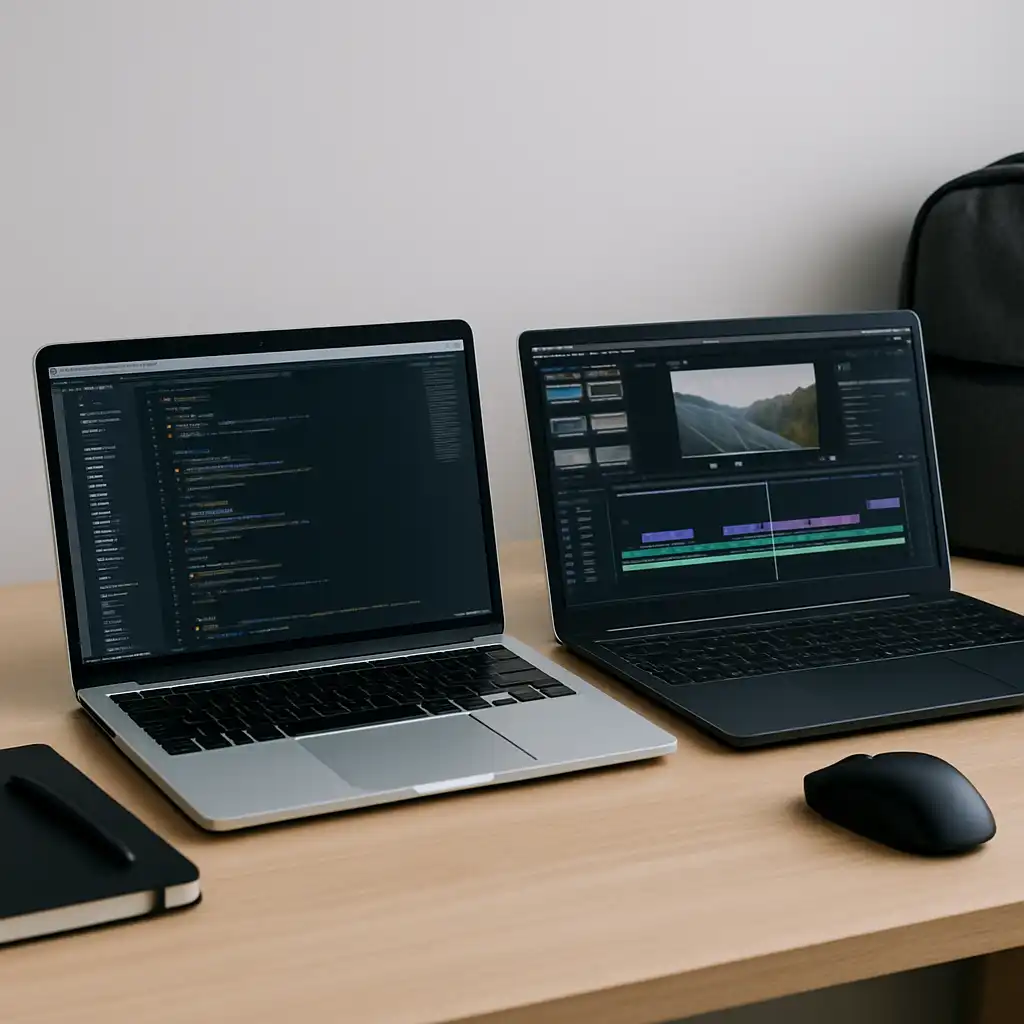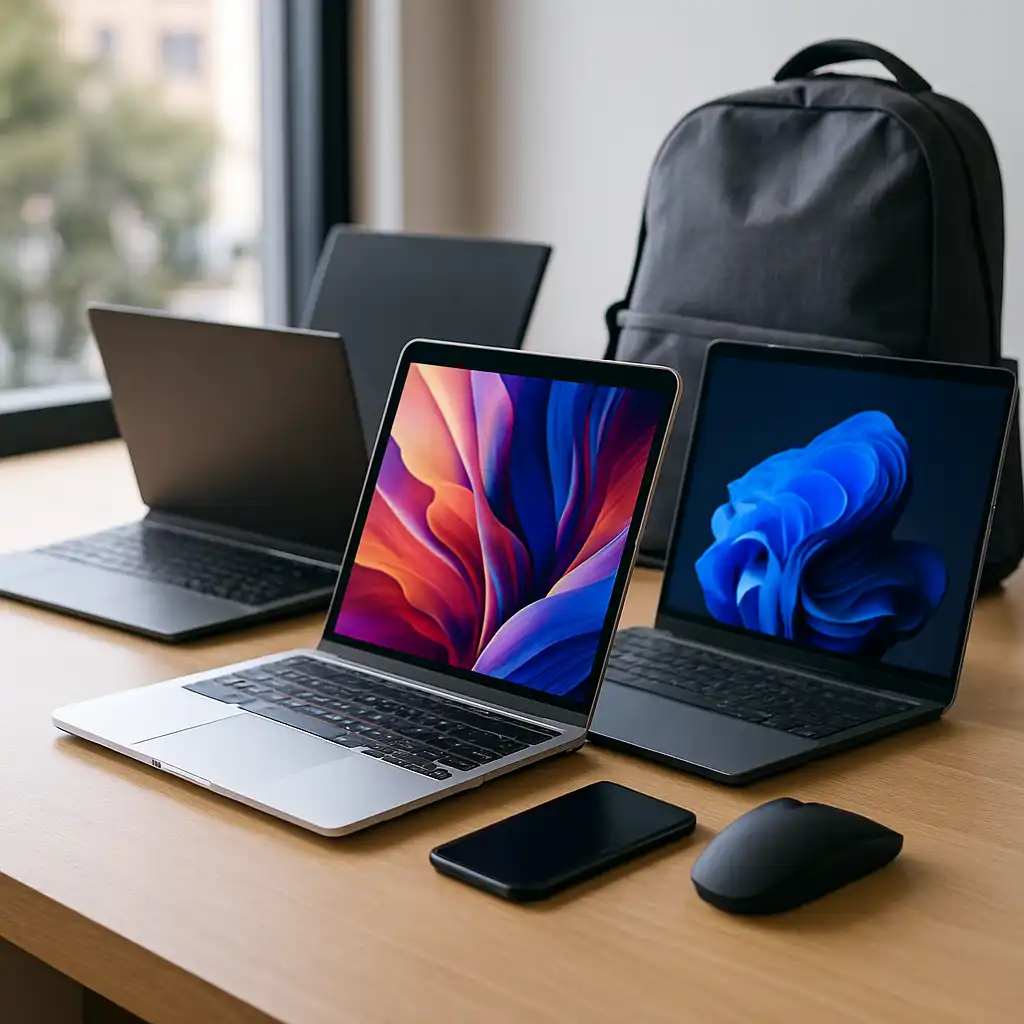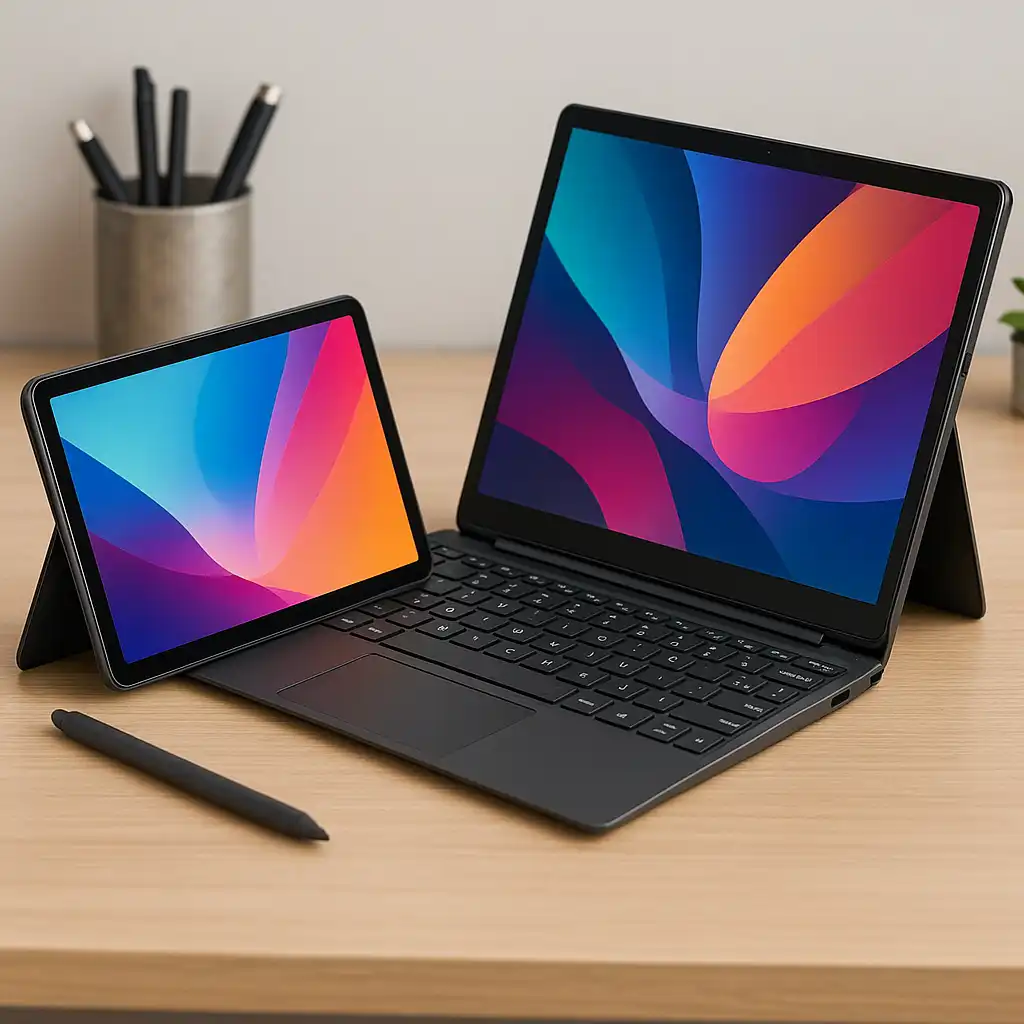6-Core vs 8-Core Laptop: How Much Performance Do You Really Need?
Disclosure: This post contains affiliate links. LaptopVoyager.com participates in the Amazon Associates Program and may earn commissions on qualifying purchases, at no extra cost to you.
Last Updated: December 2025
When choosing a laptop, core count often looks like a simple upgrade path. Going from 6 cores to 8 cores sounds like a big performance jump, but in everyday use, the difference isn’t always as dramatic as the numbers suggest. The right choice depends on how you actually use your laptop, not just how many cores the processor has.
👉 If you want a broader overview of how laptop processors compare beyond core count alone, this processor comparison guide explains what really matters when choosing a CPU.
🔍 What CPU Core Count Really Means
CPU cores allow a processor to handle multiple tasks at the same time. More cores help when workloads can be split efficiently, but they don’t automatically make a laptop faster for every task.
In practical terms:
- Fewer cores work well for light and moderate workloads
- More cores help with sustained, demanding tasks
If your software can’t take advantage of extra cores, the real-world benefit is limited.
🔍 Everyday Tasks: Is There a Noticeable Difference?
For browsing, office work, streaming, and general productivity, the difference between a 6-core and an 8-core laptop is usually hard to notice.
A 6-core laptop easily handles:
- Multiple browser tabs
- Office and cloud-based apps
- Video calls and streaming
- School or general work
For these tasks, both options feel fast and responsive.
🔍 Multitasking and Heavy Workloads
This is where 8-core laptops start to pull ahead.
An 8-core laptop is better suited for:
- Video editing and photo processing
- Programming, compiling, and development work
- Running virtual machines
- Heavy multitasking with demanding software
In many cases, this lines up with higher-tier processors. If you’re deciding whether stepping up to a stronger CPU tier is worth it, this comparison of mid-range versus higher-performance laptop processors helps explain when extra cores and power actually make sense.
🔍 Gaming Performance: 6 vs 8 Cores
For gaming laptops, core count matters less than many people expect.
In most cases:
- Gaming performance depends more on the graphics card
- A strong GPU paired with a 6-core CPU performs very well
- 8 cores can help slightly in newer or CPU-heavy games
For most gamers, a well-balanced 6-core laptop remains a solid choice.
🔍 Battery Life and Heat
More cores can mean higher power draw, especially under sustained load.
6-core laptops often:
- Run cooler in thin-and-light designs
- Deliver better battery life for everyday use
- Feel more efficient overall
8-core laptops:
- May draw more power during heavy tasks
- Can generate more heat in slim chassis
- Benefit more from stronger cooling solutions
In ultraportable laptops, a 6-core processor often provides the best balance.
🔍 Price and Overall Value
Price differences are often more noticeable than performance differences.
Typically:
- 8-core laptops cost more than similar 6-core models
- The performance gain isn’t always proportional to the price increase
- Many users don’t fully utilize the extra cores they pay for
For most buyers, a 6-core laptop delivers better overall value unless their workload clearly benefits from additional cores.
📌 Key Takeaways
- 6-core laptops are ideal for everyday use and most users
- 8-core laptops shine in heavy multitasking and creative workloads
- Gaming performance depends more on the GPU than core count
- 6-core CPUs often offer better battery life and efficiency
- Extra cores matter most for sustained, demanding tasks
🟢 FAQs
Q: Is an 8-core laptop faster than a 6-core laptop?
Not always. The difference shows mainly in demanding workloads, not everyday tasks.
Q: Do I need 8 cores for gaming?
Usually not. Most games rely more on the GPU than on extra CPU cores.
Q: Is a 6-core laptop enough for students?
Yes. A modern 6-core laptop is more than capable for school and general use.
Q: Will 6 cores still be enough in a few years?
For most users, yes. A 6-core CPU should remain capable for everyday tasks for years.
✅ Conclusion
Choosing between a 6-core and 8-core laptop isn’t about chasing higher numbers. A 6-core laptop is the smarter choice for everyday work, better battery life, and overall value. An 8-core laptop makes sense if you regularly run demanding software or multitask heavily for long periods. Pick the core count that matches how you actually use your laptop.

